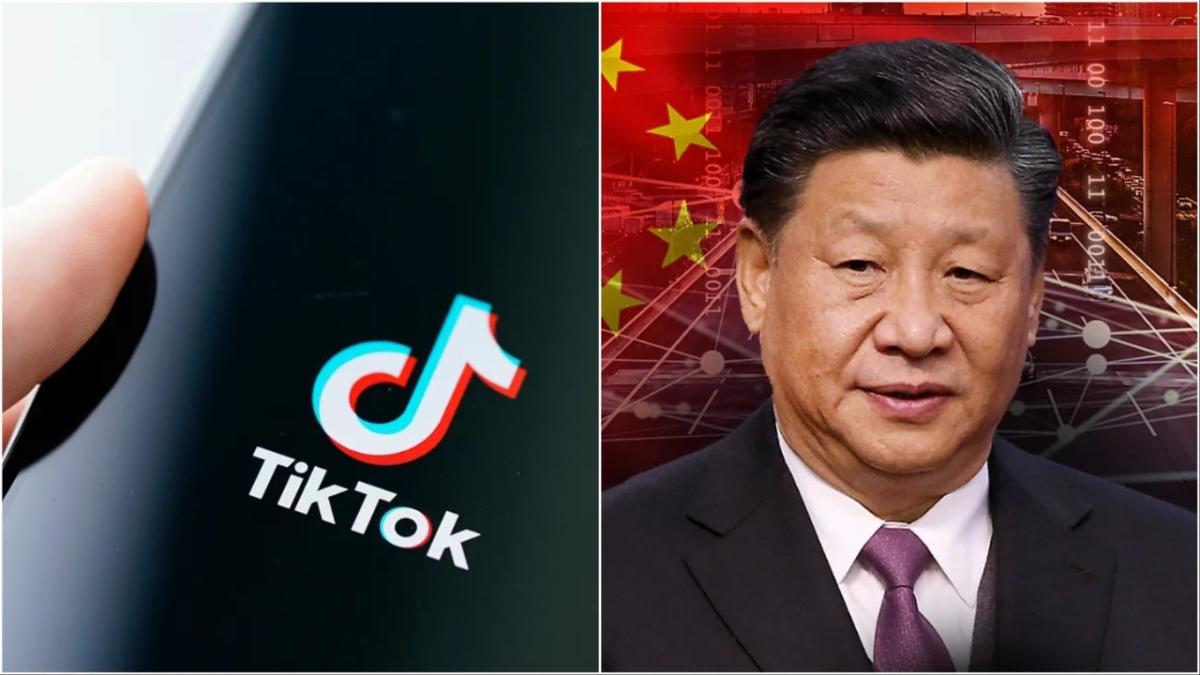A Taiwanese civil society organization recently exposed Beijing’s manipulative tactics to spread misinformation through TikTok for its vested interest. Yu Chih-hao, co-director of the Taiwanese Information Environment Research Center (IORG), informed that his organization analyzed the Chinese Communist Party’s (CCP) influence and impact on Taiwan recently. He claimed that CCP was creating an “alternative worldview” for Mandarin speakers in Taiwan and across the globe. The focus of CCP’s strategy was to discredit Taiwan’s democratic governance, its allies, divide the Taiwanese public, reinforce the perception that Taiwan is a party-state, and glorify China’s power and governing model.
According to him, China had launched fake polls in order to sway public opinion in January elections. He cited news reports from the Financial Times and Reuters, stating that the CCP worked with several Taiwanese media to “orient our public discourse.” Yu said that a major tactic by CCP propagandists was to stoke “U.S. scepticism.” As many as 84 narratives on the subject have been detected since 2021, including eight that discredited the U.S. and U.S.-Taiwan relations.
The disclosures came a month after the US House of Representatives approved the bill forcing the app’s Chinese owner ByteDance to divest from the company – or face a ban. Since then, the Taiwanese government and the media have been working rigorously to control TikTok , as the app has been spreading misinformation about Taiwan, at the behest of China.
Taiwanese Minister of Digital Affairs Audrey Tang described it as a dangerous product. According to the minister, any product that could be significantly controlled by foreign adversaries — directly or indirectly — is considered a threat to national information and communication security and is deemed as a dangerous product. There is a ban on the use of TikTok in Taiwanese government agencies and on their premises. The ban is likely to be extended to schools, non-governmental agencies, and public places.
US intelligence services have already warned of the possibilities of China using apps like TikTok to influence the country’s presidential elections in November this year. The National Intelligence has made a mention of it in the report to the House intelligence committee. “We cannot rule out the possibility that the CCP would use it (TikTok) to influence US elections,” Avril Haines, US director of national intelligence. Congressman Greg Murphy, one of the representatives who supported the bill, alleged that China was using TikTok to “target, surveil and manipulate American citizens”. “The app collects sensitive user data that is shared with the Chinese Communist Party and its intelligence services. Under its current ownership, it presents a grave national security threat,” Murphy said.
House Republicans said the ambitious data collection goals of China and the documented lack of transparency from TikTok and their executives over data and moderation practices have prompted governments, including the US, the European Union, Canada, India, and several US States to ban the use of the application on government devices.
What came as a shock was Tiktok’s transparency report regarding formal legal requests for user data. According to the latest report, requests for information by law enforcement reached an all-time high in the first half of 2022, with 4,054 total requests around the globe, reported ‘techtarget website’. The US has already banned the application on federal and public sector employees’ phones and on state employees’ phones in 32 of 50 states. Several states have also recently sued TikTok. Several universities have also banned the app on their networks.
Why is China so defensive about Tiktok?
Experts said that China has vigorously defended its digital domain, asserting its sovereignty and pushing back against what it perceives as foreign interference. From Beijing’s perspective, TikTok represents not just a social networking service but a symbol of China’s technological prowess and global influence. Any attempts to sever its ties with ByteDance will be met with staunch resistance, framed as an affront to China’s sovereignty and a manifestation of Western bias. Central to China’s defense of TikTok is nothing but a narrative of victimhood, portraying itself as the target of unjustified scrutiny and discrimination. Beijing argued that the concerns raised by foreign governments, particularly the United States, were politically motivated and rooted in a desire to contain China’s rise as a technological superpower.
By framing the debate in this way, China has sought to rally domestic support and portray itself as a defender of national interests against external threats. The reality is that China has always sought to leverage TikTok as a tool for cultural diplomacy, promoting its own narratives and values on the global stage. The most surprising was China moving an extra mile to defend Tiktok. China has adopted a strategy of reciprocity, highlighting the restrictions that foreign tech companies face in the Chinese market. Beijing argued that if Western countries can operate freely in China, then Chinese companies should be afforded the same opportunity abroad. Beijing has enacted laws governing data privacy and cybersecurity, designed to safeguard Chinese citizens’ personal information and prevent unauthorized access by foreign entities. With the geopolitical landscape constantly evolving and new threats and challenges emerging on a regular basis, China’s brazen attempt to become dominant will only intensify war in information field.

Leave a Reply